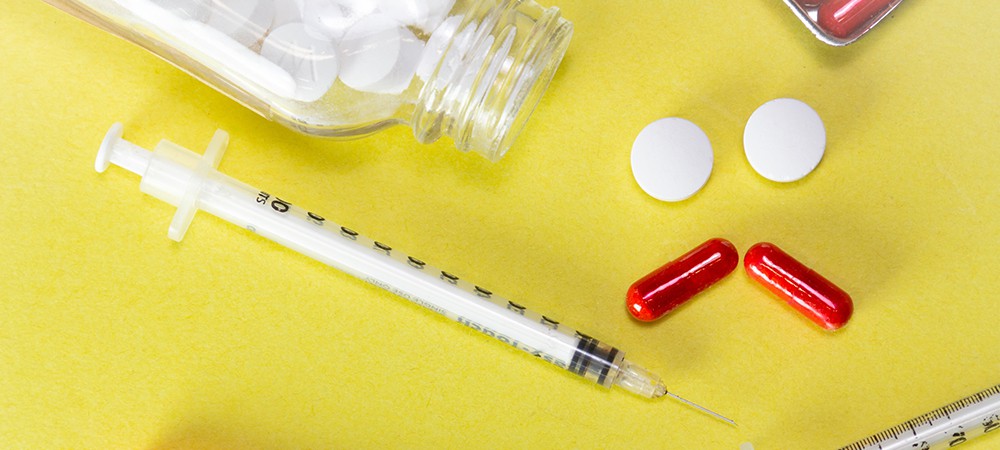How to Manage Morphine Withdrawal Symptoms
If you are dependent on morphine, you are going to experience various withdrawal symptoms when you stop taking the drug. Some of these withdrawal symptoms can be severe and life-threatening. Therefore, it is important to know how to manage morphine withdrawal symptoms to avoid critical situations that may arise.
Many people dismiss the idea of withdrawing from morphine because of these symptoms. However, there are strategies you can use to overcome the withdrawal stage of morphine addiction treatment.
It’s why we have created this short guide to managing morphine withdrawal symptoms.
You can overcome these withdrawal symptoms and continue on your path to addiction recovery with ease. In this article, you will learn how to manage morphine withdrawal symptoms. You will also discover the best morphine withdrawal treatments. Read on to know so much more.
What is Morphine?
Morphine is an opioid painkiller used in managing chronic or acute pain. It is a prescription drug, and offers many benefits in certain medical situations.
However, morphine has a high potential for abuse because of the pain-relieving and euphoric effects it leaves.

Who Can Experience Morphine Withdrawal Symptoms?
If you use morphine, whether for recreation or by prescription, you have a risk of becoming dependent on the medication. If this happens, you will become so addicted that you feel you can’t make it through the day without using morphine.
By using morphine constantly, your brain also adjusts to its presence. It becomes conditioned to its use. This means you need to continue using the drug to remain stable. At this point, when you stop using morphine, you will experience various symptoms. These symptoms are called morphine withdrawal symptoms.
If you use morphine as the physician or doctor prescribes, you will become dependent on the drug slower than someone who abuses it in large volumes. If you abuse morphine, you may:
- Use it even if it is not for you.
- Use it to get high.
- Mix it with alcohol or other medications to enhance or modify its effects.
- Use it very often in higher quantities or in a way that differs from prescription.
- Attempt to manipulate medical staff to have more of the medication.
If you are physically dependent on morphine, you will experience withdrawal symptoms when you quit its use. The degree of withdrawal symptoms you will experience depends on how long you have been addicted to morphine.
You should note that your dependence on morphine is a reflection of the drug’s physiological impact on your body. Morphine addiction is much more than your brain’s adaptation to the medication.
Continuous morphine use can lead to opioid addiction. Opioid addiction is sometimes referred to as an opioid use disorder. It illustrates the effects morphine use has on your life. If you have an opioid use disorder, you may do the following:
- Use morphine or other opioids in larger volumes over a more extended period than you planned to.
- Make futile attempts to quit the drug or use less of it.
- Spend a lot of time attempting to get the drug, use it, and recover from it.
- Have strong cravings for the drug.
- Struggle to meet your obligations at work, school, or home.
- Have issues with your education, work, or friends because of your continuous drug use.
- Display behaviours that are unhealthy and dangerous.
- Become tolerant to the drug, leading to even higher doses.
- Risk encountering negative mental, legal, financial, and physical consequences of your addiction.
- Develop withdrawal symptoms when you quit the drug.
Related Article: How Much Does Opioid Addiction Treatment Cost in Canada?
What are the Symptoms of Morphine Withdrawal?
Most people struggling with morphine addiction wonder what happens during morphine withdrawal. When you stop taking morphine, it is likely to trigger several discomforting symptoms. These symptoms differ widely from the euphoric high you get when you take opioids.
The severity of your symptoms is dependent on your level of withdrawal. Multiple factors affect the duration of your symptoms. Hence, people experience opioid withdrawal differently. These symptoms usually have a timeline for their progression.
You will start experiencing early symptoms within the first 24 hours after you stop using the medication. The first morphine withdrawal signs include:
- Restlessness
- Muscle aches
- Your eyes begin to tear up (Lacrimation)
- Excessive Sweating
- Insomnia
- Excessive yawning
- Runny nose
- Anxiety
After your first day of quitting morphine use, you may experience more intense symptoms. These may include:
- Abdominal cramping
- Diarrhea
- Vomiting and nausea
- High blood pressure
- Dilated pupils and possibly blurred vision
- Goosebumps on your skin
- Rapid heartbeat
These symptoms can be painful and unpleasant, but they usually begin to dissipate within 72 hours. Within one week, you will notice a decrease in the acute opiate withdrawal symptoms you are experiencing.
You should note that babies birthed by mothers who are addicted to or used opioids during pregnancy also experience withdrawal symptoms. The symptoms these babies may experience include:
- Poor feeding
- Dehydration
- Digestive issues
- Vomiting
- Seizures

Here’s How to Manage Morphine Withdrawal
Morphine is not a drug you should stop taking suddenly after establishing a physical dependence on it.
Instead of quitting the drug abruptly, you should do it slowly and in a more controlled way. This way, you will be able to ease withdrawal symptoms and avoid severe and life-threatening outcomes.
Opioid/Morphine Detox
One way to manage morphine withdrawal symptoms is via morphine detox. However, the detoxification process should take place in a medically assisted environment. That way, you can deal with the physical side of your addiction or dependency in a safe and well-monitored environment.
Opioid addiction treatment services offer medically-assisted detox programs that include a tapering schedule. The schedule will help in weaning the morphine slowly out of your body. This will reduce the withdrawal symptoms you may experience and limit your body’s shock if you suddenly quit the drug.
During medical detox programs, certain medications may be used for morphine withdrawal treatment and ease the withdrawal process.
- You can treat mild withdrawal with aspirin, nonsteroidal anti-inflammatory drugs like ibuprofen, or acetaminophen.
- You can treat withdrawal symptoms like diarrhea with loperamide (Imodium).
- You can also ease nausea with hydroxyzine (Atarax, Vistaril).
- In in-patient detox centers, medications like clonidine can be used to treat more severe withdrawal symptoms.
- Clonidine reduces the intensity of your symptoms.
- Suboxone is an opioid blocker that may be used to treat your withdrawal symptoms, while methadone is used for long-term maintenance therapy.
Rehab Program
Morphine detox is just one of the steps to manage morphine withdrawal. After detox, you should continue your addiction treatment by entering a rehab program. Depending on the level of your addiction, you can register for a residential rehab or outpatient rehab.
If your addiction is severe, you should join a residential rehab for complete monitoring and care. However, if you have a mild morphine habit, you can sign up for outpatient rehabs. They will allow you to continue with your everyday activities while undergoing rehab.
The duration of rehab programs depends on your goals. Some residential rehabs can last for up to a year. Outpatient rehabs are usually more flexible and may continue indefinitely.
These rehab programs have a mix of group therapies, support, individual therapies, and activities. These features help you to stay focused on morphine addiction recovery. Hence, you must take an active part in them to aid your recovery.
Holistic activities
While they shouldn’t be your primary method of managing morphine withdrawal, there are wholesome activities that can distract you from cravings that occur during morphine withdrawal. They include:
- Yoga
- Meditation
- Regular exercise routines
- Mindfulness
- Breathing Exercises
- Reading
- Team sports
- Rekindling old hobbies
Can I Detox at Home?
One common question many people ask on how to manage morphine withdrawal symptoms is if they can detox at home. It is always advisable to detox in a medical facility rather than doing so at home.
If you have a severe morphine addiction, you should always go for medically-assisted detox. However, if your morphine addiction is mild, you may opt to detox at home. However, you should only do this with the express permission of an addiction specialist.
If you choose to detox at home, you should know how to manage morphine withdrawal symptoms. The following steps are helpful in that regard:
- Ask someone you trust to do periodic checks on you.
- Drink plenty of water to avoid dehydration from diarrhea and vomiting.
- Use medication to manage severe withdrawal symptoms. You can use loperamide to help with your diarrhea and acetaminophen to manage pains and aches. For nausea, you should use dimenhydrinate.
- You should move your body. This promotes endorphins release that makes you feel better. Activities like tai chi or yoga can help in this regard. You can also take a walk.
- Take good care of yourself. Eat well-nourished meals. Take part in activities like sports, drawing, listening to music, etc. You can also speak to a trusted friend or loved one.
During detox, you should avoid taking illegal drugs or alcohol. Also, avoid medicines that make you tired, such as muscle relaxers or sleeping pills.
Please note that you shouldn’t do at-home detox without first speaking to an opioid addiction treatment professional. If your symptoms worsen and you can’t manage them, you should quickly go to a detox center.
Related Article: When to Intervene to Help a Loved One Get Off Opioids
Conclusion
In this article, you have learned how to manage morphine withdrawal symptoms. You now know that it’s possible to treat morphine addiction and manage your withdrawal symptoms effectively.
Get all the help you need today. Contact our opioid addiction treatment center today. Here at Inspire Change Wellness Addiction Treatment Center for Men, we will find a treatment program that offers a safe withdrawal stage. Book a consultation session with us today!



